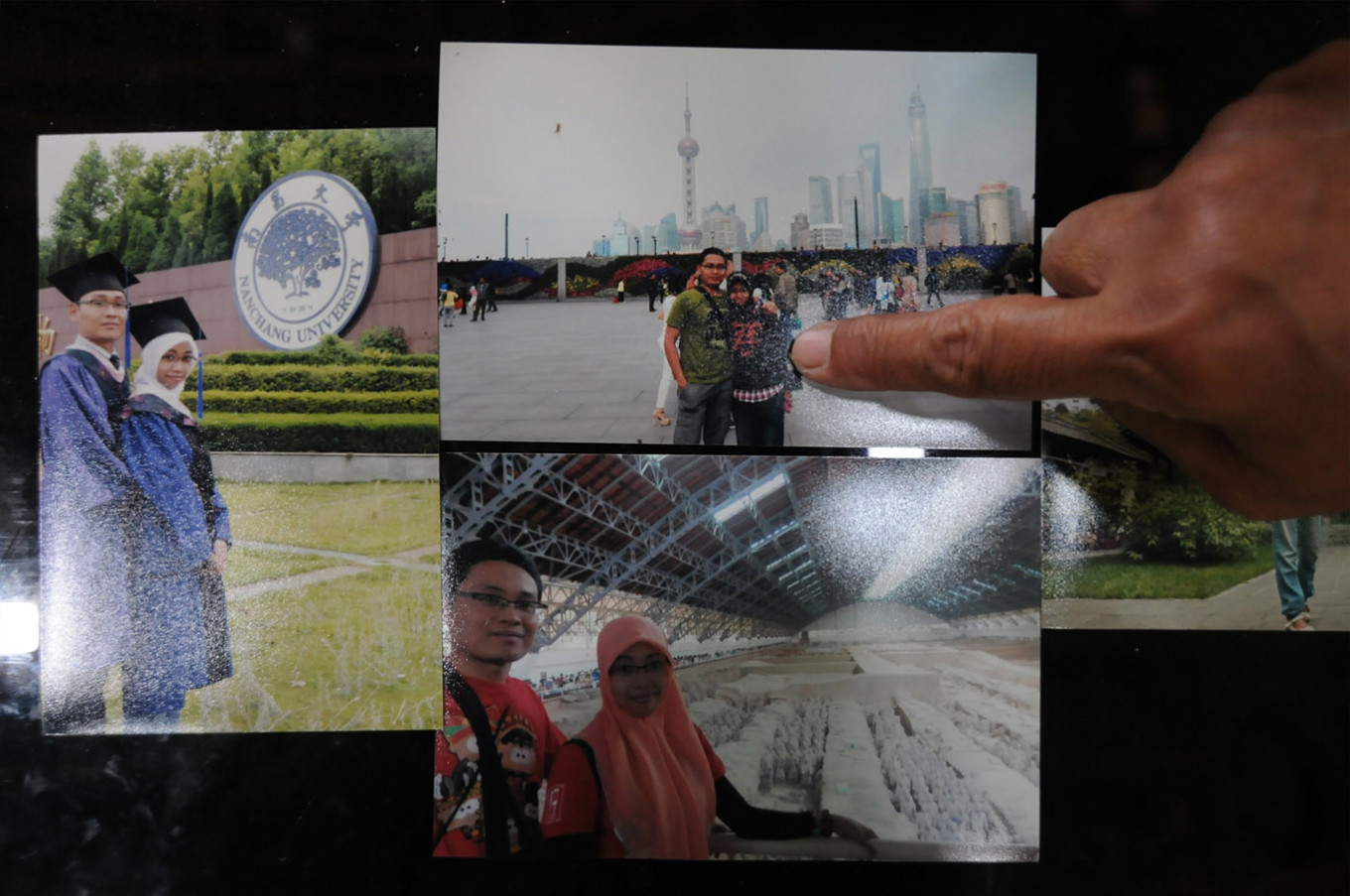
Relatives anxiously await return of Indonesians trapped in coronavirus epicenter
by Vela AndapitaFor Indonesians with relatives trapped in China’s Hubei province — the epicenter of a new coronavirus outbreak that has sickened thousands and killed hundreds in the country — the internet has become an essential tool to cope with the crisis.
Haryati, a resident of Makassar, South Sulawesi, said that her 25-year-old niece, Fitriani, is currently pursuing her Master's degree at the China University of Geosciences in Wuhan, Hubei’s commercial center and the first city to be locked down by the Chinese government.
“We chat almost all the time, day and night. We talk via video call two or three times a day. We do everything to make sure she’s alright,” she told The Jakarta Post on Wednesday.
Fitriani, who lives in her university’s dormitory, is among 243 Indonesians trapped in virus-hit Hubei. Some 100 of them are in Wuhan. The government has said that it is ready to repatriate them even though it has yet to set a specific time frame.
The authorities are facing the challenge of gathering Indonesian nationals who reside in different cities in Hubei province to a specific location while the lockdown is still in place.
Haryati said that for now he would rely on social media to keep informed about Fitriani’s condition. Her niece uses a virtual private network (VPN) to bypass the Chinese government’s ban on social media platforms such as WhatsApp and Instagram.
“We try to stay calm and trust the government. If evacuating the Indonesian nationals out of China is not yet possible, we really hope the government will at least support them with basic necessities like food and vitamins to keep them healthy,” she added.
Wuhan is where the new coronavirus was first identified on Dec. 31. People there had stockpiled groceries in the following weeks as most food stalls and supermarkets were closed. The prices of commodities have increased and the roads are unusually quiet around the clock.
As of today no Indonesians in Hubei have been suspected of having caught the deadly virus.
Besides Fitriani, Rio Alfi has also been residing in Wuhan since 2016 with his wife, Riza Delviani, and their two children. The lockdown was imposed shortly after the student of the China University of Geosciences and his little family planned to return home to Pekanbaru, Riau.
Riza’s older sister, Ade, said the most challenging thing at the moment is to calm down their parents, especially whenever they read or hear hoaxes and fake news regarding the situation in China.
“I try to always make sure Rio is contactable and can talk to our parents at all times. We mostly worry about their children, whose immune systems might not as strong as those of the adults,” she said.
“We respect whatever the government has been doing so far. However, we really expect they can come home soon. The longer they are there, the more isolated they are,” she said.
Unlike Fitriani and Rio who are constantly in touch with their families to ease their anxiety, an Indonesian student at Huazhong University of Science and Technology, Khoirul Umam, said he preferred to only tell his parents good news.
“My parents are the opposite of tech savvy. They know very little about the virus and I’m glad about that. I only tell them about my daily activities so that they would not worry too much about me,” the 30-year-old told the Post.
Khoirul said each of the Indonesians in Hubei had received 280 renminbi (US$40) to help them buy food and supplies in the quarantine zone. The Foreign Ministry allocated Rp 133.2 million ($9,749) for this effort.
In the near future, Indonesians in Wuhan can also expect to receive 10,000 N95 masks from the National Disaster Mitigation Agency. The agency on Wednesday gave the masks to the Foreign Ministry to be sent to China.
“If one day the government finally decided to evacuate us, I hope they will not announce our identities to the public to prevent us from being stigmatized by our neighbors,” Khoirul said.
The Indonesian Air Force has kept three aircraft and health personnel on standby to evacuate Indonesian nationals from Wuhan. The aircraft — two Boeing 737s and an Indonesian Military C-130 Hercules — would be able to carry more than 200 people. (mrc)